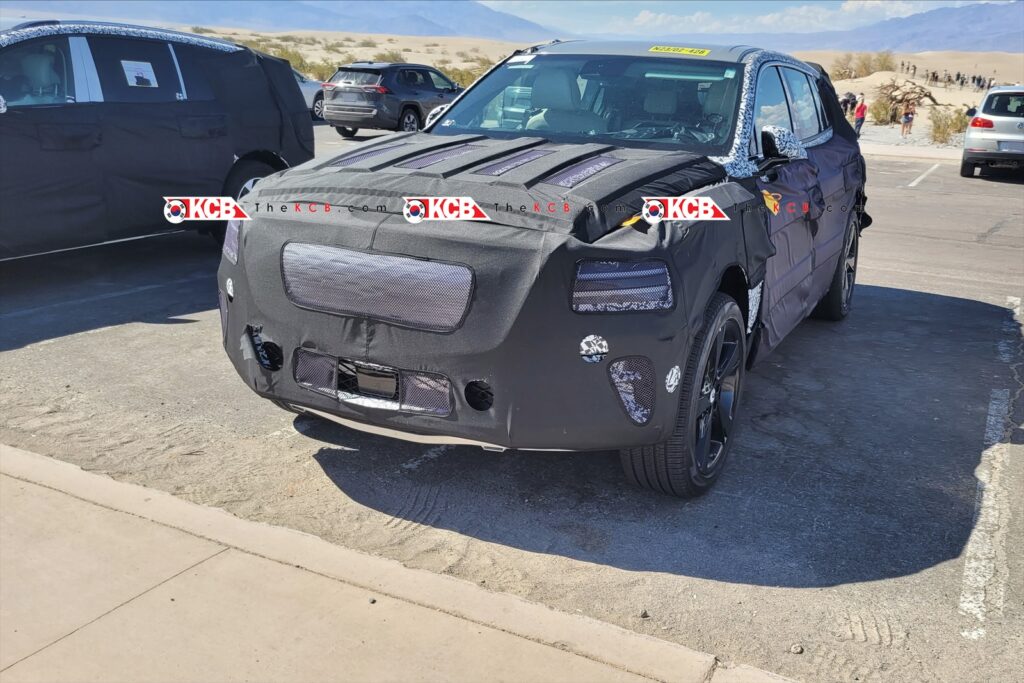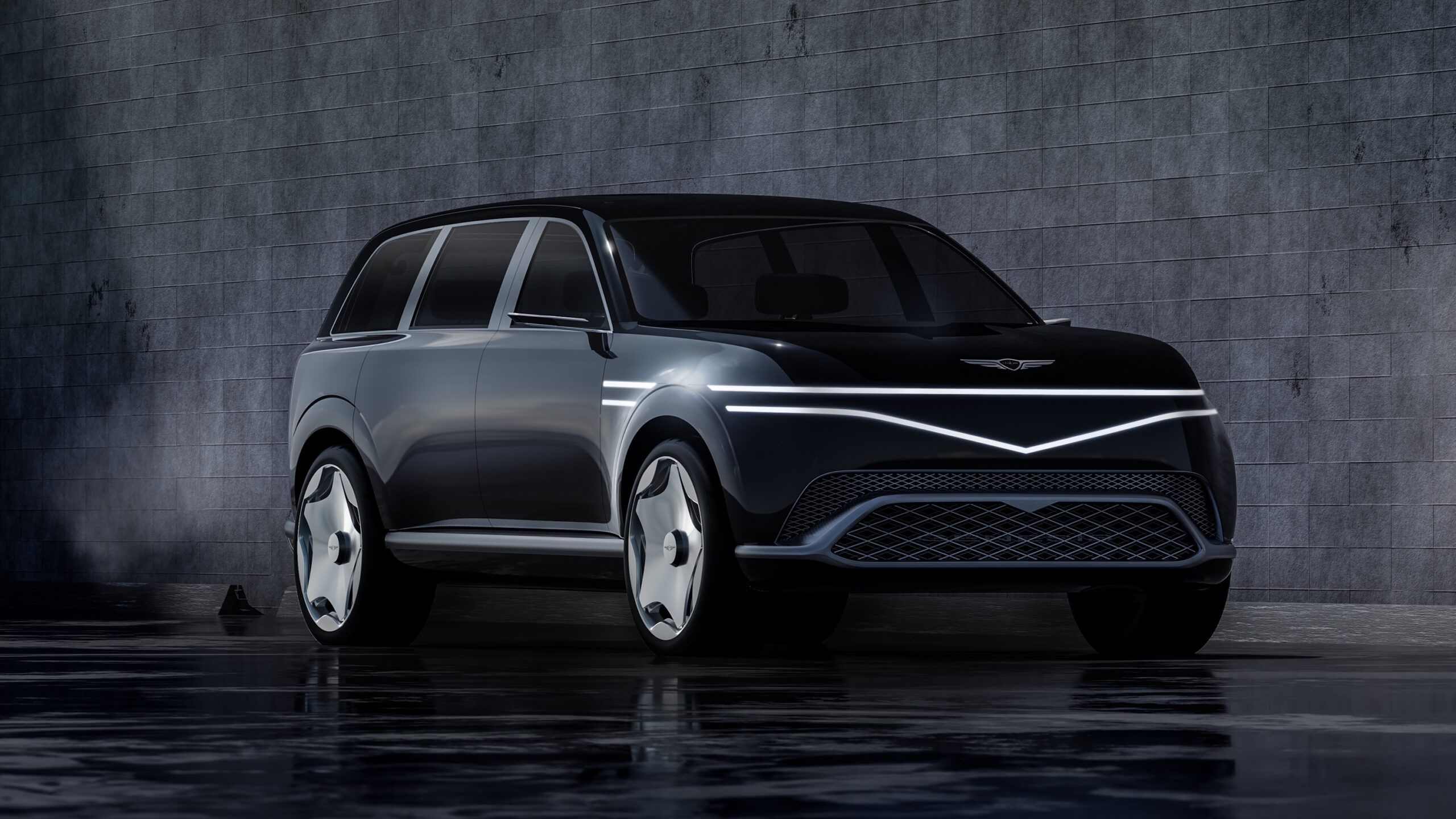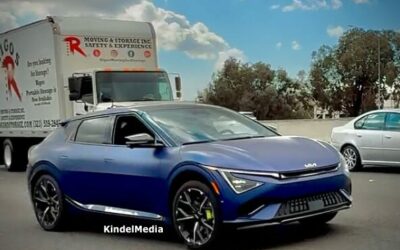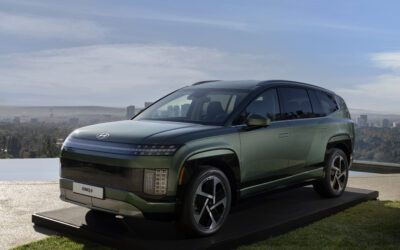HMG is set to begin production of its first large electric sport utility vehicle (SUV) under the premium Genesis brand, the GV90, in December 2025. The large SUV segment is the most popular in the United States, and an electric SUV powered solely by batteries is seen as a benchmark of a manufacturer’s capabilities. Hyundai plans to introduce its next-generation electric vehicle (EV) platform or eM in the GV90, aiming to showcase a signature electric vehicle model that combines efficiency and stability on a global scale.
Seizing the Booming Large Electric SUV Market with the GV90
According to the automotive industry on the 15th, Hyundai recently sent a request for quotation (RFQ) to major automotive partners, detailing plans to apply the next-generation EV platform, known as ‘eM‘, to all its models including the GV90. The estimated annual production volumes specified in the RFQ are approximately 21,000 units for the GV90, 68,000 units for the GV80, 40,000 units for the GV70, and 51,000 units for the G80. Hyundai aims to produce and sell a total of around 1,132,000 units of these four premium Genesis models, incorporating the next-generation EV platform, from December 2025 to 2033.
The GV90 is at the core of this strategy. Hyundai unveiled the 5.25-meter-long large electric SUV Neolun concept car in New York last March, which serves as the basis for the GV90’s development. To date, no automaker has released a large SUV powered entirely by electricity. Even Tesla’s Model X is classified as a mid-size SUV. An industry insider noted, “A large electric SUV is the ultimate test of an automaker’s EV and battery technology. Even Chinese electric car manufacturers, who lead the world in EV and battery technology, are vying to dominate this market.”

Genesis GV90 Test Mule
Advanced Modular System Development
Hyundai expects the GV90 to demonstrate the performance of its next-generation EV platform on the global stage. The GV90 is rumored to feature coach doors (dual-hinged design) without a B-pillar between the front and rear doors. Industry experts attribute the ability to create a premium large SUV without a B-pillar to the structural integrity provided by the next-generation EV platform. A representative from a Hyundai partner stated, “The next-generation EV platform uses integrated casting methods with special alloys for key body components, resulting in a lightweight yet extremely strong vehicle body.”
In addition to structural integrity, another highlight of the next-generation EV platform is its ‘scalability.’ It is designed to be easily adaptable from small to extra-large vehicles, including commercial trucks. This scalability is achieved through ‘modularization.’ Hyundai has developed a total of 86 modular systems in advance. These systems, like Lego blocks, can be used without size constraints, allowing for rapid new model development.
Mass production of key components and their application across various models also significantly reduces costs. Hyundai estimates that models utilizing the next-generation EV platform can achieve over 20% cost savings compared to existing models. The platform’s thermal management system boosts battery energy efficiency by approximately 50%. It also offers a variety of battery options depending on vehicle class, usage, and consumer preference, including both NCM (nickel-cobalt-manganese) and LFP (lithium iron phosphate) batteries for mid- to low-priced models.
Hyundai aims to sell 2 million electric vehicles globally by 2030. Hyundai Motor President Jae-hoon Chang recently stated at the CEO Investor Day, “We plan to apply the next-generation EV platform to 13 models across the Hyundai Motor Group by 2030, which will result in significant cost savings.”
Conclusion
Hyundai’s strategic introduction of the GV90 and its advanced next-generation EV platform positions the company to capitalize on the burgeoning large electric SUV market. By combining cutting-edge technology, modular design, and a focus on efficiency and stability, Hyundai is poised to make a significant impact on the global EV landscape.






